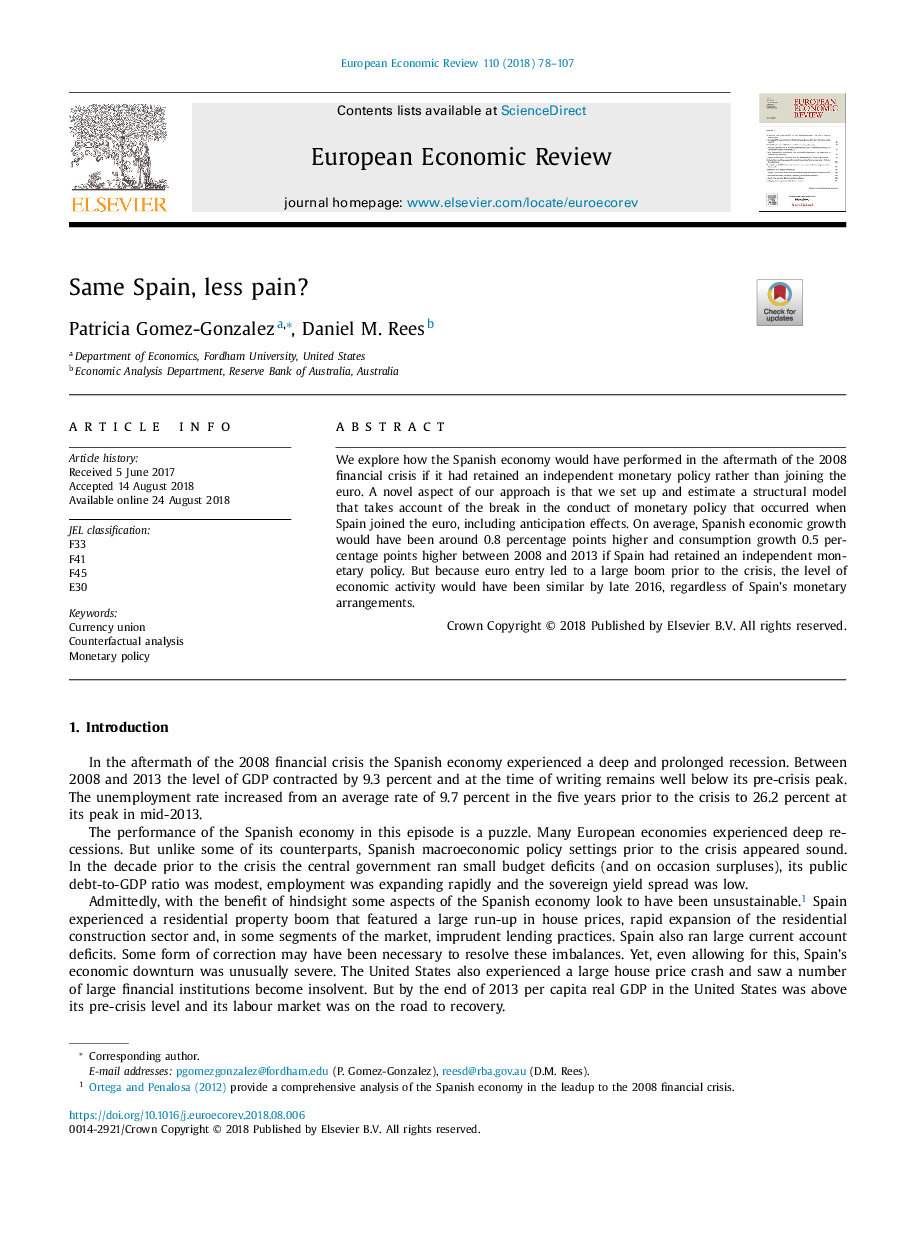| Article ID | Journal | Published Year | Pages | File Type |
|---|---|---|---|---|
| 10140416 | European Economic Review | 2018 | 30 Pages |
Abstract
We explore how the Spanish economy would have performed in the aftermath of the 2008 financial crisis if it had retained an independent monetary policy rather than joining the euro. A novel aspect of our approach is that we set up and estimate a structural model that takes account of the break in the conduct of monetary policy that occurred when Spain joined the euro, including anticipation effects. On average, Spanish economic growth would have been around 0.8 percentage points higher and consumption growth 0.5 percentage points higher between 2008 and 2013 if Spain had retained an independent monetary policy. But because euro entry led to a large boom prior to the crisis, the level of economic activity would have been similar by late 2016, regardless of Spain's monetary arrangements.
Related Topics
Social Sciences and Humanities
Economics, Econometrics and Finance
Economics and Econometrics
Authors
Patricia Gomez-Gonzalez, Daniel M. Rees,
